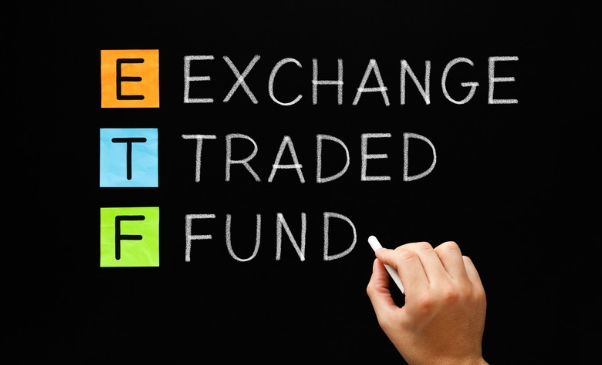Etfs vs. Mutual Funds: a Complete Guide.
Many options are available to you when it comes to making investments. Mutual and exchange-traded funds are the most popular methods to put money to work. Investing in stocks, bonds, and commodities, among other things, may be done using a single security called an exchange-traded fund (ETF). This opens up a broad variety of investment opportunities, which might help your portfolio be more well-rounded.
Investments may be made via mutual funds. Because of this, it seems that you are trusting another person's judgement when deciding how to allocate your funds. This option might be great if you don't have the time or ability to complete the work. ETFs are a terrific option if you want to diversify your portfolio and get greater control over your holdings. Mutual funds are an excellent option if you'd rather have someone else handle your investments.

What Are ETFs?
ETFs, exchange-traded funds, are mutual funds that trade like stocks on the stock market. But unlike typical mutual funds, ETFs don't have a manager who oversees the investments. Exchange-traded funds (ETFs) are considered a more efficient and cost-effective alternative to conventional mutual funds. The majority of the time, you may swap them with no additional costs, and they have reduced expense ratios. However, unlike mutual funds, ETFs allow investors to purchase and sell shares at any moment throughout the trading day. Investments in mutual funds are valued once daily at the close of trade.
If you're considering investing in exchange-traded funds (ETFs), you should educate yourself thoroughly on how they function and the potential dangers they may pose before you make any purchases.
What Are Mutual Funds?
Mutual funds are a special kind of investment fund that uses the combined capital of many investors to acquire a diversified group of securities. A variety of assets, such as stocks and bonds, may be classified here. An experienced and knowledgeable professional money manager manages the fund. When someone manages a fund, they are responsible for making investment decisions and running it.
Diversification, access to expert management, and high liquidity are just a few advantages mutual funds provide to their shareholders. However, they have a few issues, such as high membership fees and additional costs you must cover. If you're considering investing, this is especially important to know.

How to Differenciate Between ETFs and Mutual Funds?
The most common investment vehicles are mutual funds and exchange-traded funds (ETFs). Knowing the key distinctions between your two choices is essential before making any decision. Mutual funds have a team of professionals in finance managing the money and investing it in a variety of assets. As a result, they often have a higher entry fee than exchange-traded funds. However, they also provide investors with some security against market fluctuations.
Conversely, exchange-traded funds do not have active management. As a result, they cost less than mutual funds but provide less security against market fluctuations.
Pros and Cons of ETFs
Exchange-traded funds (ETFs) are superior to mutual funds in tax efficiency. Only the capital gains on the portion of an ETF that has increased in value must be reported and taxed upon sale. Furthermore, ETFs often have lower expenses than mutual funds do. This is because there is no need for management; hence the owners save money.
However, there are some negative aspects to consider as well. ETFs, or exchange-traded funds, are generally more volatile than mutual funds. They do this because they often employ indexes, the values of which are notoriously unpredictable.
Pros and Cons of Mutual Funds
Like any other investing option, mutual funds come with their fair share of pros and cons. One of the nicest things about investing in mutual funds is that you may obtain expert management. Mutual funds are a smart investment strategy since they diversify your portfolio. When you invest money into a mutual fund, you contribute to a broader pool of assets. Because of this, the danger is shared by a larger group of individuals. This has led some to believe that investing via a mutual fund is more secure than purchasing equities directly.
Administrative and transaction charges are typical examples of what you might expect to spend, and they can mount up over time. Changes in the market may have an effect on mutual funds just as they might on any other investment.
Which Is Right for You: ETFs or Mutual Funds?
Investing in mutual funds vs exchange-traded funds: which is preferable? If you're looking for a flexible investment option where you may make frequent transactions, exchange-traded funds (ETFs) might be the way to go. However, investors who are risk-averse or looking to put their money to work over the long term may be better served by mutual funds.
What you decide to do with and how you put your assets to use ultimately determines the outcome. You should see a financial counsellor if you need assistance deciding amongst the available choices.
Why Choosing an Etf Over a Mutual Fund is beneficial?
In light of what you now know about ETFs and mutual funds, why would you invest in an ETF instead of a mutual fund? There is a strong correlation between the fees charged by a mutual fund and those charged by an ETF. They usually contribute less to the tax system as a whole as well. Since transactions take place on an exchange, you also have more say over your purchases and sales timing.
Mutual fund trades, on the other hand, are finalised at the close of each trading day at the closing price. You cannot trade mutual fund shares before the market closing. There are several cases when a mutual fund might be preferable over an exchange-traded fund (ETF). First, mutual funds are often more actively managed than ETFs (ETFs).
Finally, unlike mutual funds, exchange-traded funds (ETFs) have fewer investment options. You can normally decide how frequently you are paid when you invest in a mutual fund, and you can always pull your money out if needed. However, when you put your money into an exchange-traded fund, you often can't touch it until its term is over.
Conclusion
There is a wide variety of investment opportunities available to you. Investing is often done via one of two main vehicles: mutual funds or exchange-traded funds (ETFs). Managers of mutual funds, who are financial specialists, choose the underlying assets. Exchange-Traded Funds (ETFs) are passively managed and based on an index. Mutual funds, on average, have greater expenses than exchange-traded funds. Mutual funds, on the other hand, might provide you with more one-on-one assistance. Exchange-traded funds (ETFs) provide investors with superior tax benefits compared to mutual funds.
Considerations such as these are essential for any investor deciding between exchange-traded and mutual funds. If you're looking for the guidance of market professionals and are ready to pay for it, mutual funds might be the perfect investment vehicle for you. If you're looking for a method to invest with less effort and lower costs, exchange-traded funds (ETFs) may be the way to go.




